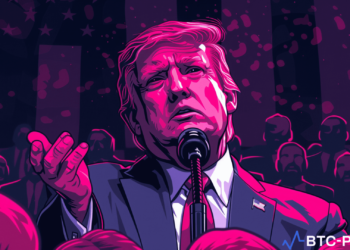Ripple Labs Inc. and its Move towards Tokenization
Ripple Labs Inc., renowned for its path-breaking initiatives in blockchain and digital payments, recently unveiled an ambitious plan to revolutionize the real estate industry using tokenization. Antony Welfare, the Central Bank Digital Currency (CBDC) advisor at Ripple, has shed light on the increasing global interest in CBDCs and stablecoins. In a recent tweet, he stated that Ripple’s team is actively exploring practical applications for CBDCs and stablecoins, especially focusing on real estate asset tokenization.
Integrating e-HKD, Tokenized Real Estate, and Finance Lending Protocols
During a fintech conference held in Romania, Welfare illustrated a compelling use case that integrates the digital Hong Kong dollar (e-HKD), tokenized real estate, and finance lending protocols. Ripple’s pilot program aims to allow users to tokenize real estate assets, which they can then use as collateral for loans, utilizing Ripple’s CBDC platform.
The Potential Impact on the Real Estate Industry
Ripple’s venture into the realm of real estate tokenization underlines their recognition of the industry’s revolutionary potential. By leveraging blockchain and digital currencies, Ripple aims to address the current challenges and reveal new opportunities within the real estate sector.
Successful real estate tokenization could have far-reaching effects, including enhanced liquidity, expanded market access, and simplified transaction processes.
Tokenization: A Game-Changer across Sectors
Tokenization has sparked substantial interest across various sectors, demonstrating its transformative power. This innovative process involves turning physical assets like real estate, artwork, and intellectual property into digital tokens securely stored on the blockchain.
These tokens act as digital representations of ownership or stakes in the actual assets. They facilitate buying, selling, and trading on decentralized platforms. The growing interest in tokenization stems from its potential to revolutionize traditional asset ownership and investment models.
Blockchain-based tokenization enhances liquidity, accessibility, efficiency, transparency, and security. As more industries and investors recognize its advantages and potential, tokenization is set to gain more traction as a leading trend in the financial and asset management sectors.
However, the adoption and implementation of tokenization face potential regulatory hurdles and the need for compliance with local laws. In addition to regulatory issues, there are also security concerns related to tokenized assets that must be addressed as the industry evolves.










